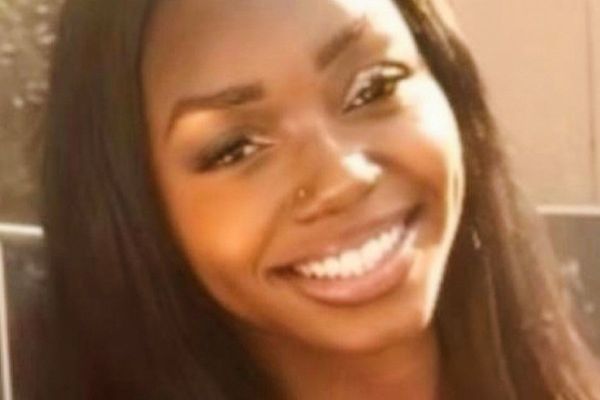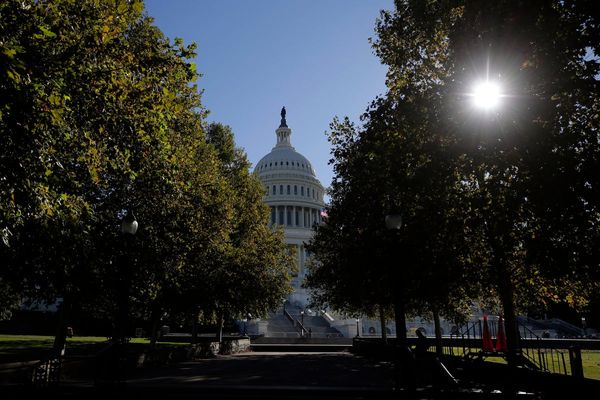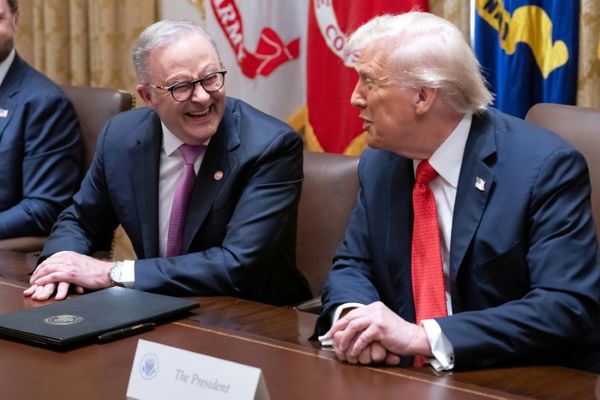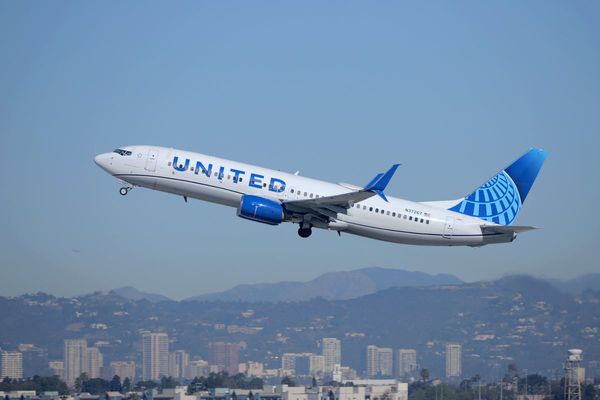PRIME Minister Rishi Sunak repeatedly refused to set out the democratic route for Scotland to hold an independence referendum.
Sunak is undertaking a two-day visit to Scotland where he announced the locations of two “green freeports” in conjunction with the Scottish Government, one in Inverness and Cromarty, and the other in the Firth of Forth.
Ahead of the announcement, the PM spoke to BBC Good Morning Scotland (GMS), who probed him on numerous issues including independence and whether or not the UK Government will challenge Scotland’s Gender Recognition Reform Bill from being given royal assent.
Sunak met with First Minister Nicola Sturgeon in Inverness on Thursday night for a “working dinner”, and the BBC suggested the two politicians had likely discussed the issue of independence.
He was then asked what the democratic route for Scotland to hold an independence referendum is, on multiple occasions, but refused to set out a route.
It is the first time the PM has been asked about the course for an independence referendum since the Supreme Court ruled that Holyrood did not have the legislative competence to have a referendum.
Sunak told the BBC: “On independence, obviously that’s something that Nicola Sturgeon and I disagree on, but what I firmly believe is that people in Scotland want and expect both of their governments right now working with a relentless focus on the issues that matter to them, their families, their communities …”
The journalist interrupted to point out to the Prime Minister that around “half” of Scots do want an independence referendum, as polling after the Supreme Court ruling has shown.

He said: “Well I do think right now, I think everyone acknowledges that all our different parts of the United Kingdom whether that’s Scotland, England, or Wales and Northern Ireland, are facing challenges.
“For example, in their NHS’s, we’re seeing the impact of Russia’s war on Ukraine and what that’s doing to our energy supplies and need for energy security, we can all see the impact that inflation is bringing on household bills.”
The journalist asked a third time if Sunak would “accept that people in Scotland want to make this choice themselves and they want the UK Government to allow that to happen through a democratic vote?”
He cited the Supreme Court ruling being “completely clear” about the Scottish Government not being able to legislate for a referendum “unilaterally”.
He added: “What I want to do is, as you can see, I hope, have a constructive dialogue with the Scottish Government and continue to deliver for the people of Scotland.
“Today’s announcement on the two new freeports is a great example of us doing that, it’s something practical and real that will deliver jobs and investment here in Scotland and that right now must be our priority given some of the economic challenges we are all facing.”
Sunak also told the programme that he is “not going to agree on everything” with Sturgeon, but added he believes there is scope for co-operation.
“What I want to do as Prime Minister of the United Kingdom is work constructively with the Scottish Government to make a difference to people in Scotland,” he said. “We’ve got lots of challenges that we all face collectively around the UK and where we can work together and make a difference, we should.”
Sturgeon said their meeting had been “perfectly constructive and cordial” and included a discussion on the pressures facing the NHS.
However she said Sunak had not come with a promise of any new money for the health service in Scotland.

“No indication from the Prime Minister of new money, but hopefully we will see strong investment in the NHS,” the First Minister said.
“The Scottish Government continues to work hard to avert strike action in the NHS.”
On Scotland’s gender reforms, Sunak said he was “concerned” about the impact across the wider UK, but would not confirm if the UK Government will go so far as to block it. The reforms allow transgender Scots to obtain a Gender Recognition Certificate (GRC) without a medical diagnosis.
The Prime Minister instead said the Government is taking advice on the issue “as is completely standard practice”.
Later, SNP Westminster leader Stephen Flynn said the UK Government should not block the bill.
He told Good Morning Scotland: “This is not just a question about the GRR (Gender Recognition Reform Bill) or people’s individual views on it. This is about democracy.
“The Scottish Parliament has voted in favour of legislation that sits within devolved competencies, and it’s incumbent upon Westminster to ensure that legislation is passed in full.”
Flynn also said economic trouble in the UK demonstrates the need for a discussion about Scottish independence.
He said: “Real wages are at a level akin to the early 2000s, inflation’s at a 40-year high, we’ve seen the currency collapse last year. We’ve seen the Government collapse on numerous occasions last year.
“If we want to have stability, if we want to have that positive future – to offer a little bit of hope to people, because things are grim right now – then we need to have that discussion about Scottish independence and how we do things differently.”







